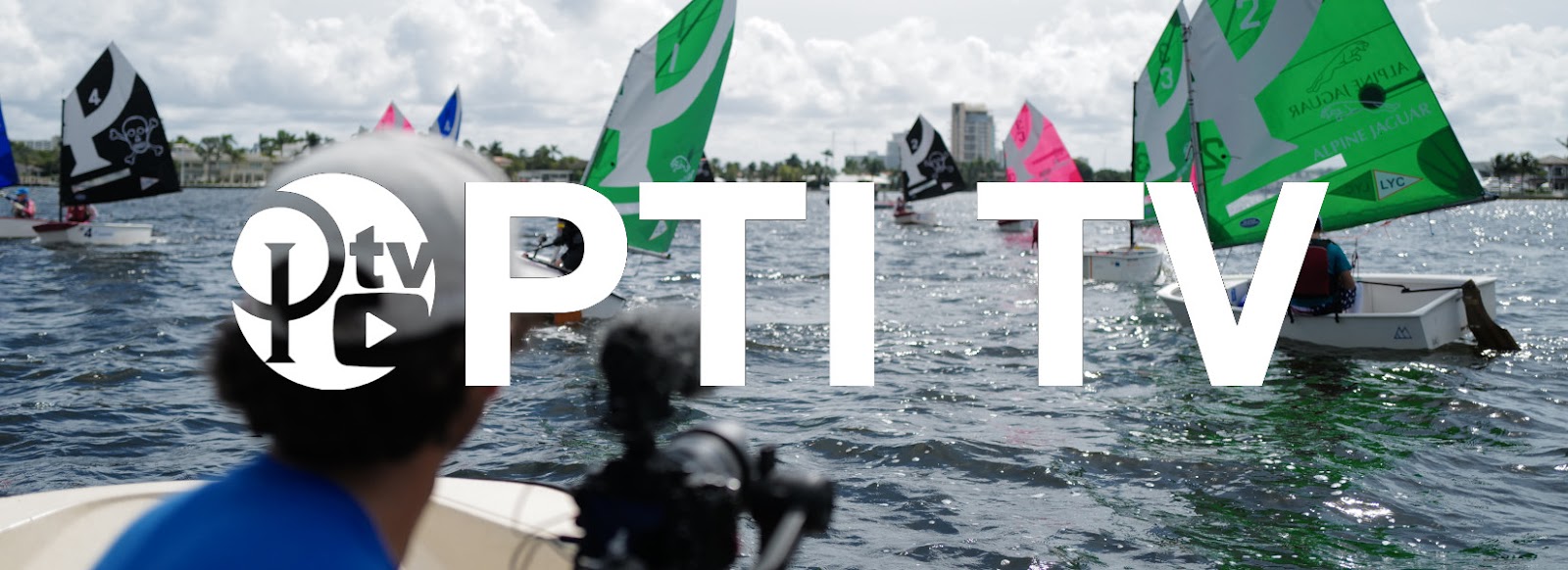Because Information Gained Is Information Conveyed
by A.Olivo
For as much as we get information through video now, books are still a critical source of information for sailors. There are many different books out there for racing sailors but I've found its often difficult to equate the information in them to Opti sailing. However, in our library we have these 5 great volumes that can make a big difference in your Opti coaching. Check them out below and we've included amazon links in case you want to pick them up:(disclaimer: we are a participant in the Amazon Affiliate Program, where we earn a small commission through sales generated by our Amazon links, at no extra cost to you.)
Winner's Guide To Optimist Sailing by Gary Jobson
A legend in the sailing world on his own right, Gary Jobson wrote this with the idea that any Opti Sailor can read it and gain a competitive advantage. The book is already a few years old but contains great information that is Opti-specific and can be shared with your Sailors. Don't write this one off as it still is applicable to any Opti sailing out there.
The Optimist Dinghy 1947-2007: A provisional history of the first sixty years of the International Optimist dinghy by Robert Wilkes, Clifford McKay Jr.
The definitive history of the International Class across it's first 60 years, this book should be read by anybody involved in Opti Sailing as it shows just how important this little dinghy has become and perhaps can serve as a reminder of it's humble roots and purpose. Remember coaches, these are kids after all - they are not professional sailors (yet)!
Winning In One-Designs by Dave Perry
Our first pick from the Rules Guru Dave Perry, this book is one of our favorites because it de-mystifies large fleets that one-design boats often see. With Dave's signature writing style, he does a great job of simplifying big fleet tactics and starts. It does deal a lot with bigger boats but almost all of it is applicable to Opti fleets.
Tactics made simple by John Emmett
Olympic gold medallist and multiple world champion, Paul Goodison, explains why this book is important if you want to win races. He says: “To win sailboat races you need to sail the boat fast. This comes down to hours on the water training and tuning – there are few shortcuts to hours of practising on the water. To consistently win races you need to sail fast and smart – making the right decisions to sail the best course. If you are not the fastest boat, you are still able to win races and regattas by managing risk and sailing smart. This is where good tactics come in. But, unlike boatspeed, tactics may be learnt by thinking about each leg of the course and different situations from the comfort of your own home. Jon Emmett’s new book, Tactics Made Simple, is a great tool to help fast track this learning.”
100 best racing rules quizzes by Dave Perry
Our second pick by Dave Perry, is his latest version of his 100 best racing rules quizzes. This book is a goldmine for racing coaches, helping you to gauge the level of knowledge with your group about the rules, and challenge them on their knowledge, because as we all know Opti sailors are not the most well-versed! Note that this book gets updated by Dave on every iteration of the rules book, so make sure you pick up the latest version of it to avoid having gaps in the quizzes as rules change.






Comments
Post a Comment